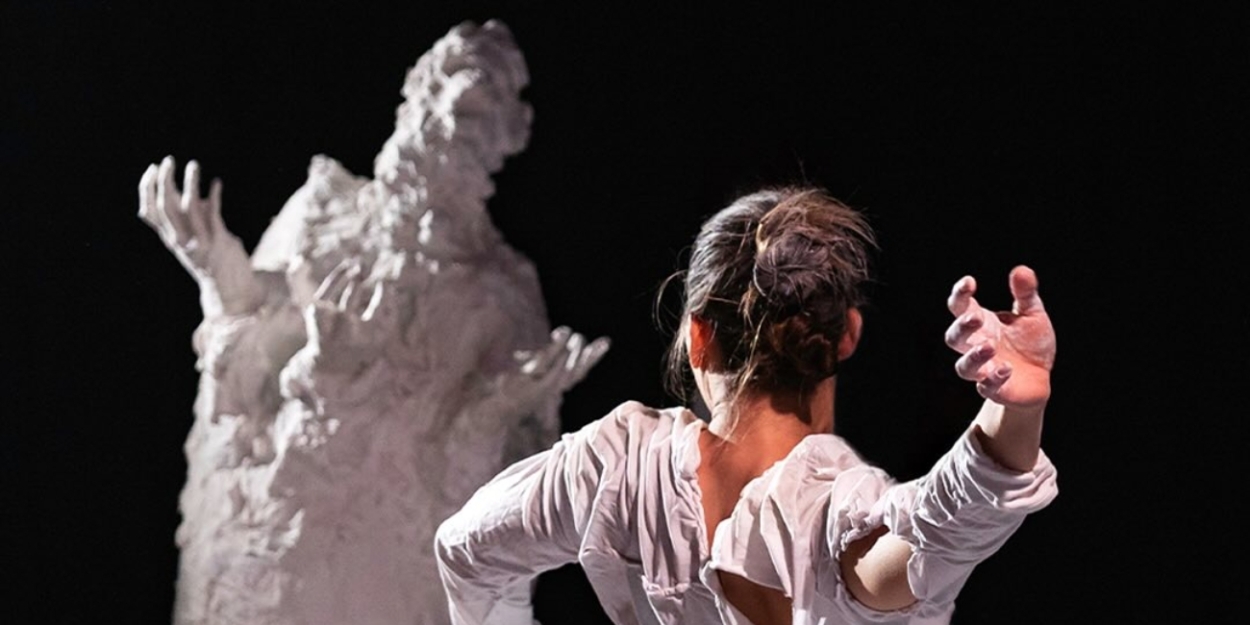Review: THE LEFTOVERS at Space Theatre, Adelaide Festival Centre
Interpreting the Theseus's Paradox .

Reviewed by Ray Smith, Thursday 3rd October 2024.
As I arrived early at the Space Theatre foyer for the Motus Collective's performance of The Leftovers, I sat with a glass of wine to observe the incoming audience and peruse the programme for the upcoming show.
The audience members arriving were diverse and quite animated as they entered. Young folks in tee-shirts and jeans mixing with older couples in posh frocks and business jackets were drawn, as I was, to an ambiguous sculptural form standing white and crude in the foyer with us. The object had a roughly humanoid form, standing about two metres tall, with five hands protruding from its midsection.
Curious.
The programme spoke of the Theseus's Paradox, a Greek thought experiment about the concept of a ship being rebuilt one piece of timber at a time until every component had been replaced. Is it the same ship or not? The contemporary, cruder and more comical analogy is that of Grandpa's Axe. It has had three new handles and two new heads, but it is still as good an axe as when Grandpa used it.
As we entered the theatre itself, I was advised by an usher to sit as close to the front and as far to the side as I could. I took her advice and found a seat in the front right at the very end of the row and took in my surroundings.
The performance space was white. The floor was white. Three sculptural forms, by Nicholas Hanish, similar to the one in the lobby were white. Four dancers were moving around the space, apparently oblivious to us and each other, all dressed in white, and even their hair was whitened. On the far side of the space, another rank of seating rose, sandwiching the performers between the observers who were still filing in.
Alix Kuijpers's soundscape was ambiguous, neither natural nor musical, apparently arrhythmic, and almost atonal, just at the edge of the listener's ability to find form or pattern. The lighting was quite bright and shamelessly white and, coupled with the starkness of the set, the whole tableau was quite alien and disconcerting.
A voiceover suddenly came over the speakers in a rather dispassionate, and interruptive Acknowledgement of Country, before a chord began to swell and another voice asked, “Where did you go and why did you leave?”
The premise of the work, the programme informed me, was to interpret the Theseus's Paradox to the metaphysics of our own lives. Given the, not entirely accurate thesis that our own cells are replaced every seven years, are we the same creature that we were at the end of that transformation? Do emotions, relationships, thoughts, and motivations survive that renewal process?
The four dancers, Felicity Boyd, Sophie Hollingworth, Tayla Hoadley, and Isobel Stolinski, interpreted Zoe Gay's choreography with extraordinary skill and athleticism.
They questioned love, loss, fear, doubt, and joy, the very nature of the human condition, in a series of almost individual works within the broader work, emphasising the individuality of every circumstance, every choice that we make as we progress through our existence.
It was a performance of questions rather than answers, leaving each individual audience member to answer those questions from their own, personal viewpoint. The ending of the work left me baffled, I have to admit, and I can only recommend that you experience it for yourself.
I left the theatre puzzled, introspective, but thoroughly satisfied by this beautiful work.
Reader Reviews
Videos

